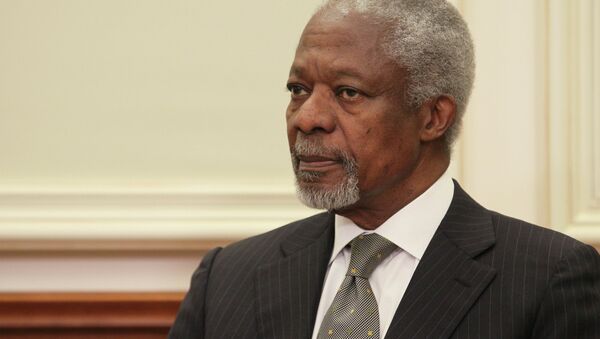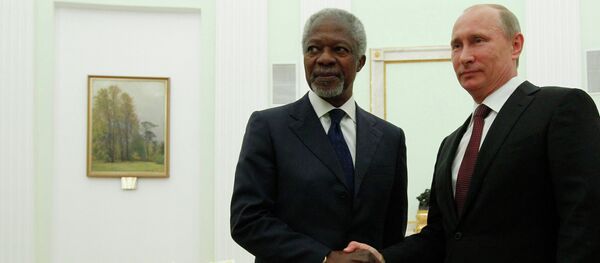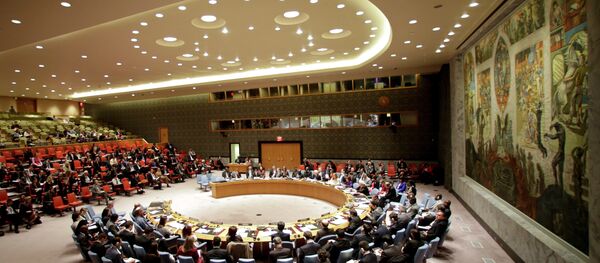"I think, objectively speaking, it should be easier to resolve the Ukrainian problem compared with what we are dealing with in the Middle East, provided there is will and determination by the leaders concerned and the parties to make the Minsk agreement work," Annan said, adding that the Minsk deal "may not be perfect, but it's workable."
Annan headed a delegation of The Elders, a group of 12 former global leaders, who met with Russian President Vladimir Putin on Wednesday in Moscow.
"The Elders believe firmly that the Minsk 2 agreement must be implemented and implemented fully," Annan said, stressing that "the four leaders who signed it also have the responsibility to make sure it is done and find a way of bringing the parties together to implement the agreement."
An armed conflict erupted in Ukraine's southeast in mid-April, 2014, when Kiev forces launched a military operation against Donetsk and Luhansk independence supporters who refused to recognize the new coup-installed government.
In February, the leaders of Russia, Ukraine, France and Germany met in the Belarusian capital, Minsk, for talks on Ukrainian reconciliation. The talks resulted in a ceasefire agreement between Kiev and the self-proclaimed people's republics of Donetsk and Luhansk (DPR and LPR). The deal also stipulates measures aimed at decentralizing power in Ukraine, giving more autonomy to DPR and LPR.
This is the second truce agreed upon by Ukraine's conflicting parties. The first ceasefire, signed in September, 2014, following Contact Group talks on Ukraine in Minsk, failed to hold.
Both Kiev authorities and the self-proclaimed republics have repeatedly accused each other of violating the Minsk 2 agreement.




